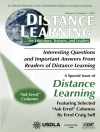Does flexible working really provide a better work-life balance?
Throughout the COVID-19 pandemic, flexible working has become the norm for many workers. This volume offers an original examination of flexible working using data from 30 European countries and drawing on studies conducted in Australia, the US and India. Rather than providing a better work-life balance, the book reveals how flexible working can lead to exploitation, which manifests differently for women and men, such as more care responsibilities or increased working hours.
Taking a critical stance, this book investigates the potential risks and benefits of flexible working and provides crucial policy recommendations for overcoming the negative consequences.
Inhoudsopgave
Introduction: The flexibility paradox and contexts
The demand for and trends in flexible working
The dual nature of flexibility: Family-friendly or performance-oriented logic?
The outcomes of flexible working
The flexibility paradox: Why more freedom at work leads to more work
The empirical evidence of the flexibility paradox
Gendered flexibility paradox
Flexibility stigma and the rewards of flexible working
The importance of contexts
COVID- 19 and flexible working
Conclusion: Where do we go from here?
Over de auteur
Heejung Chung is Professor of Work and Employment in King’s Business School at King’s College London.












